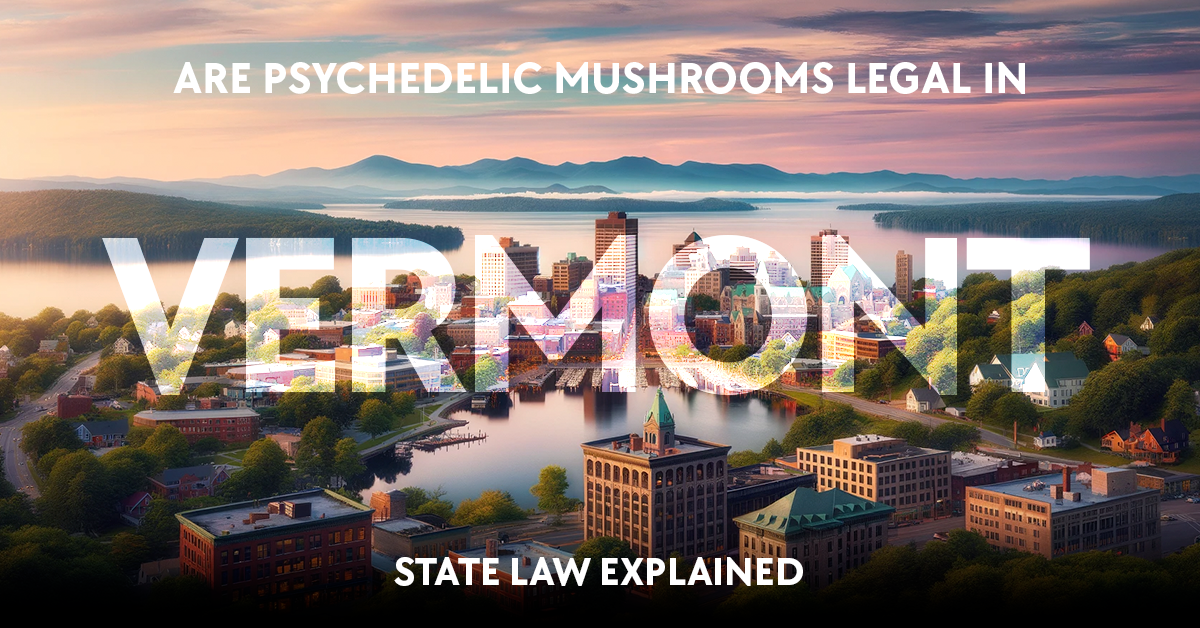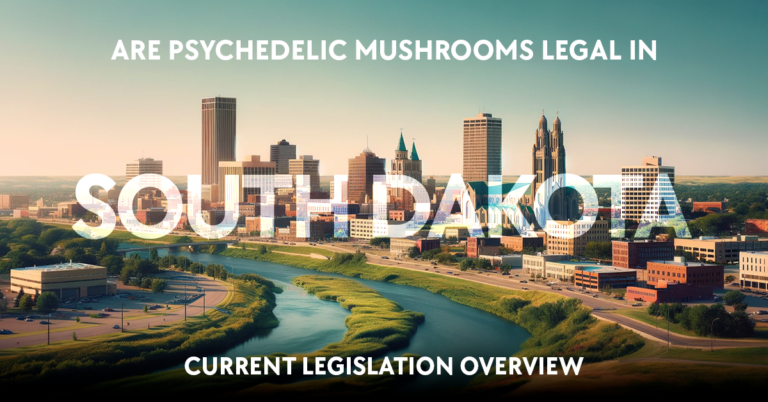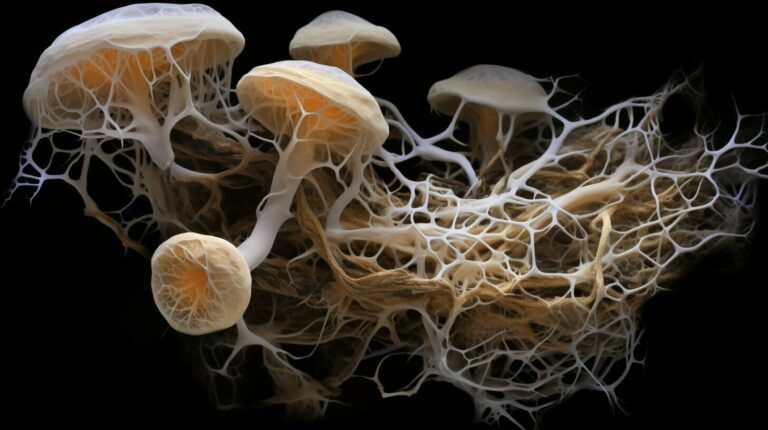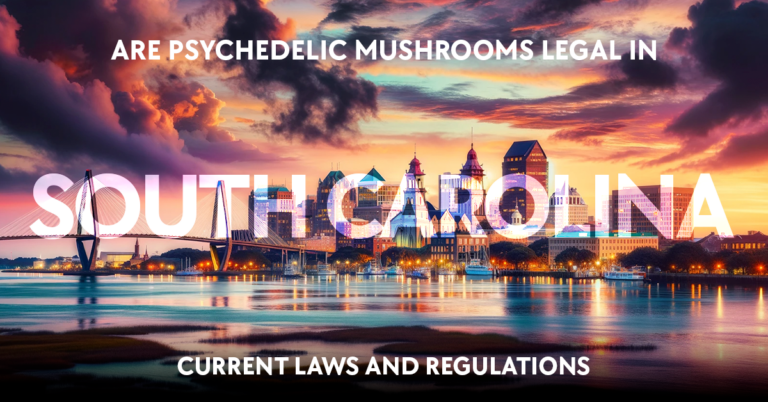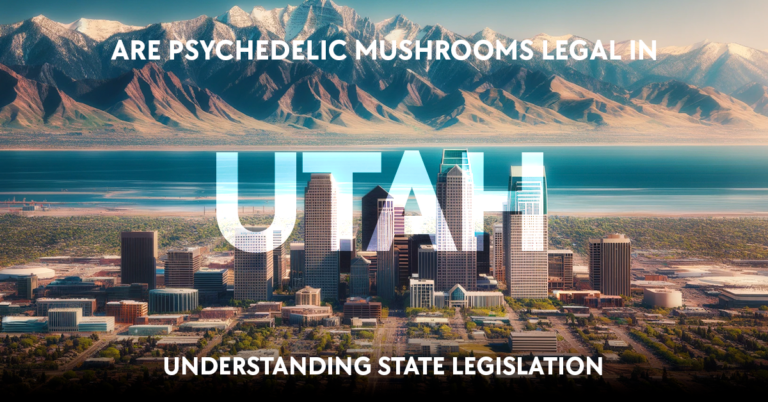When you inquire about the legal status of psychedelic mushrooms in Vermont, you’re tapping into a complex intersection of local, state, and federal regulations. Psychedelic substances, including psilocybin—the active compound found in psychedelic mushrooms—are listed as Schedule I drugs under the United States’ Controlled Substances Act. This classification means that as of the federal level, these substances are deemed to have no currently accepted medical use and a high potential for abuse.
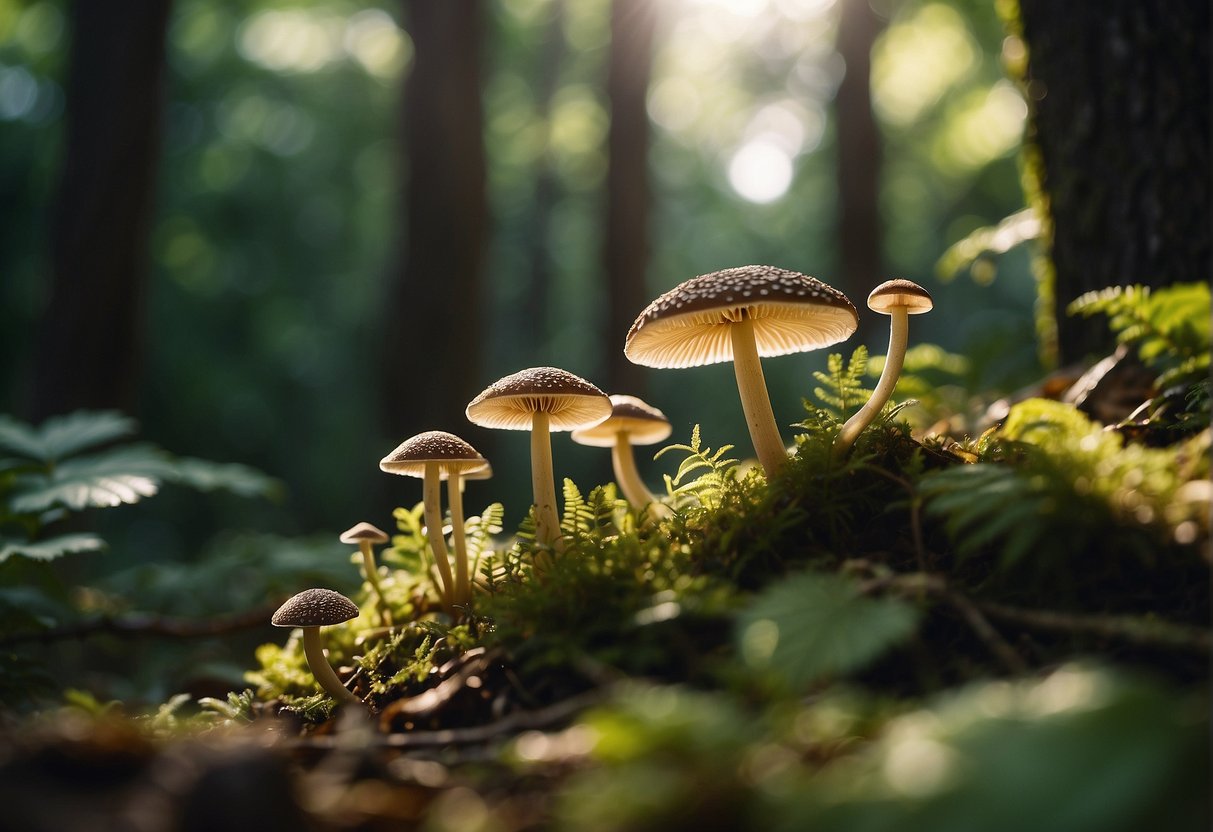
However, the legal landscape at the state level can vary and has been in flux in recent years. In Vermont, as in many other states, the possession, sale, and distribution of psychedelic mushrooms remain illegal under state law. There have been discussions and movements in several jurisdictions aiming to change the legal status of psilocybin and related substances, influenced by emerging research on their therapeutic potential.
While reform efforts continue to shape policies, it’s essential for you to be aware that regardless of changes in public perception and scientific understanding, as of the current law in Vermont, psychedelic mushrooms are not legal. It’s important to stay informed of the local laws, which have the potential to change as more states explore the decriminalization and medical research of these substances.
Legality of Psychedelic Mushrooms in Vermont
Table of Contents
https://www.youtube.com/watch?v=2Trpa7xEZgI&embed=true
Before diving into the specifics, it’s essential for you to understand that currently, in Vermont, psilocybin mushrooms are illegal and possession could lead to penalties.
Current Status
Psilocybin mushrooms, known for their psychedelic effects, remain illegal in Vermont. Classified as a Schedule I drug under federal law, their possession, sale, or distribution is considered a felony in the state. If you are found with these substances, you may face severe legal consequences. Despite this, there has been significant movement to alter the legal landscape surrounding psilocybin mushrooms in Vermont.
Efforts to Decriminalize
Lawmakers have introduced legislation seeking to decriminalize psilocybin mushrooms. Notably, bill H.878 was introduced, aiming to shift psilocybin’s status from a felony offense to a civil offense under certain circumstances. Another legislative push, H.423, called for the establishment of the Drug Use Standards Advisory Board, indicating a willingness among some lawmakers to examine and potentially reform the state’s stance on substances like psilocybin. These efforts are part of a broader national conversation on psychedelic substances and their possible medical applications, therapeutic potential, and the impact of criminal penalties on drug use. Keep an eye on these legislative developments, as they could signal changes in how Vermont addresses the legality of psychedelic mushrooms.
Historical Context
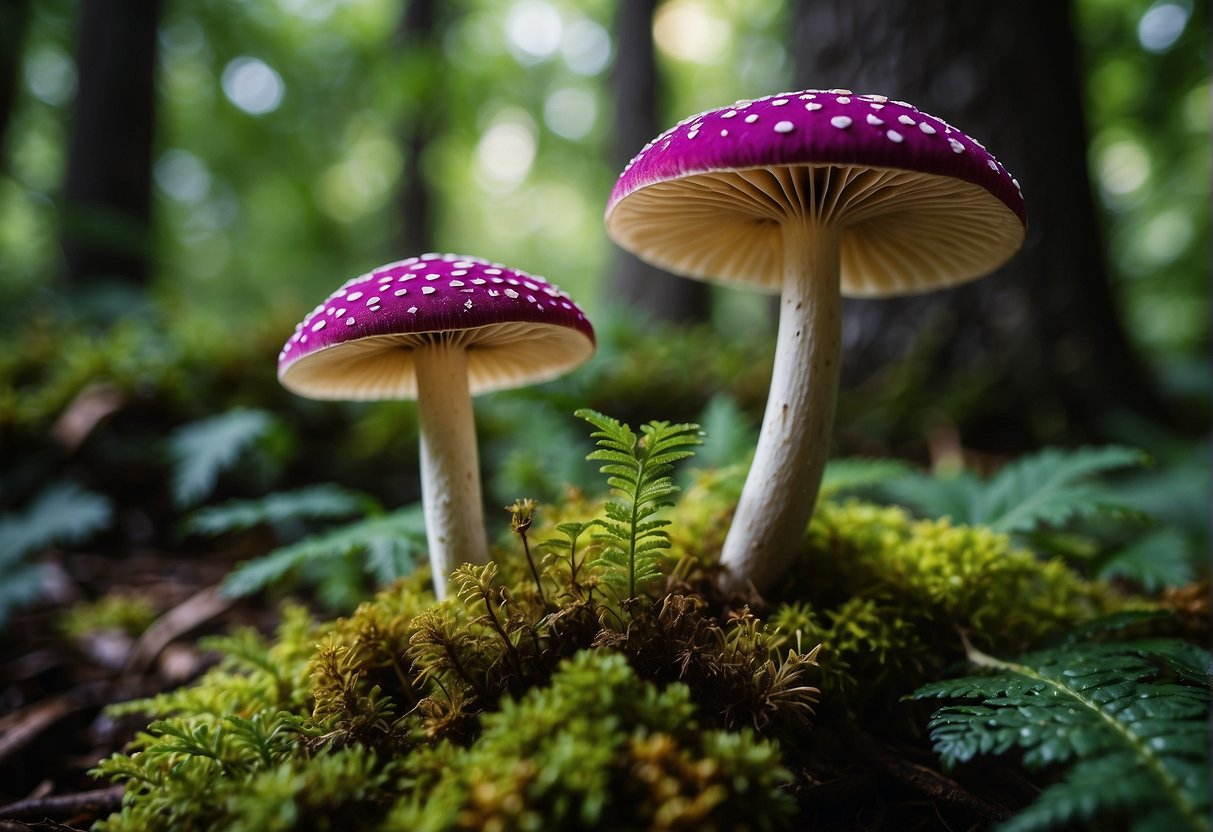
In Vermont, your understanding of the legality of psychedelic mushrooms must take into account both the origins of their criminalization and the evolving public perception. These dynamics mirror a nationwide reevaluation of drug policies.
Origins of Criminalization
During the War on Drugs initiated in the 1970s, substances like psilocybin mushrooms were broadly criminalized across the United States. Vermont followed federal guidance, categorizing psychedelics under controlled substances, thereby impacting public health, legal systems, and research into the therapeutic potential of these compounds. This era marked a significant shift, as indigenous uses of such substances and emerging scientific research were overshadowed by strict legal enforcement.
Shift in Public Perception
More recently, you’ll notice a transformative shift in how psychedelic mushrooms are viewed, partly influenced by research underscoring their potential therapeutic benefits. Movements advocating for decriminalization and, to a lesser extent, legalization, have gained momentum, impacting the legal status of psychedelics. Vermont’s discussions and legislative actions reflect this change, considering more nuanced approaches that prioritize public health and safety over stringent prohibition.
Medical and Therapeutic Usage

Psychedelic mushrooms, specifically those containing psilocybin, are gaining attention for their potential to treat a range of mental health conditions. As you explore this topic, it’s important to consider the research progress and the therapeutic implications tied to their medicinal use.
Mental Health Treatment
Psilocybin has been studied for its potential to alleviate various mental health issues. You may find it compelling that psychedelic therapy is being assessed for efficacy in treating depression, anxiety, PTSD, and addiction. Clinical research indicates that psilocybin, under controlled settings, can have profound effects on mood and cognition, potentially offering relief where traditional treatments have failed.
Clinical Trials and Research
Recent clinical trials serve as a cornerstone in understanding the therapeutic value of psychedelic mushrooms. Ongoing research, such as studies conducted in New Jersey, Vermont, and California, is critical for establishing the safety and efficacy of psilocybin as a medicinal option. You should note that these scientific efforts underpin the efforts to redefine the legal status of psychedelic substances for medicinal use.
Medicinal Benefits
The medicinal benefits of psychedelics, particularly in mental health treatment, are increasingly recognized by the medical community. Psilocybin has shown promise in study after study as a potent agent in combating severe and treatment-resistant mental health disorders. This has given rise to discussions within a psychedelic therapy advisory working group aimed at advancing therapeutic applications and policymaking to support medicinal use.
Vermont’s Legislative Actions on Psychedelics

In Vermont, your lawmakers have shown interest in reforming the legal status of psychedelic substances, particularly through efforts to decriminalize simple possession. This has been evident through a series of bills and proposals that have emerged in the state legislature.
Recent Bills and Proposals
-
Bill H.878: Introduced by Rep. Brian Cina, this bill aimed to decriminalize the possession of psychedelic mushrooms. It represented a shift towards considering the therapeutic potential of psilocybin, the active compound in these mushrooms.
-
Senate Bill S.114: This piece of legislation sought wider reform, proposing to decriminalize the possession of all drugs in small amounts, reflecting a broader drug policy reform movement.
Key Developments:
- 2020: Bill H.878 enters the legislative process, but does not pass.
- 2021: S.114 is introduced, advocating for a health-centered approach to drug possession.
Key Figures and Advocates
-
Rep. Brian Cina: As the primary sponsor of Bill H.878, Rep. Cina has been a notable advocate for the decriminalization of psychedelics in Vermont. His work has helped push these discussions into the state’s legislative agenda.
-
Dave Silberman: A pro bono drug policy reform advocate, Silberman has been vocal about the need to shift Vermont’s drug laws towards a decriminalization model, emphasizing harm reduction and public health.
Advocacy Efforts:
- Public testimonies and legislative engagement
- Community-based campaigns for drug policy reform
Your understanding of Vermont’s legislative movements around psychedelics is crucial to grasp the evolving dialogue and potential changes in your state’s drug policies. With figures like Rep. Brian Cina and Dave Silberman leading the push, Vermont continues to explore avenues to address drug reform.
Comparative Laws and Reform
In this section, you’ll explore the nuanced legal landscape of psychedelic mushrooms within the United States and internationally. This will help you understand the current state of drug reform as it pertains to psychedelics like psilocybin.
Other States’ Approaches
In the U.S., various states are shifting their stance on psychedelic substances. Oregon made history by becoming the first state to legalize the regulated use of psilocybin mushrooms for therapeutic use with Measure 109, passed in November 2020. This indicates a move towards recognizing the possible therapeutic benefits of psychedelics under a regulated system. Meanwhile, California has seen the introduction of several drug-reform bills advocating for the decriminalization of psychedelics, but as of my knowledge cutoff in early 2023, these have not been enacted into law.
Colorado also follows this trend. In 2022, it implemented legislation somewhat akin to Oregon’s, indicating a growing acceptance of psychedelics within therapeutic contexts. It’s important to note that “legalized” in this context often means “regulated”—which implies the state controls the circumstances under which these substances can be used.
Other states, including Connecticut and Hawaii, have proposed all-drug decriminalization legislation, which would reshape the legal landscape of psychedelics if passed. However, your attention should be on whether these proposals become law, as they point to a broader, more comprehensive approach to drug policy reform.
International Standards
Globally, the legal status of psilocybin mushrooms varies significantly. Many countries adhere to the UN Convention on Psychotropic Substances of 1971, which restricts psilocybin. In this context, decriminalization or legal regulation of psilocybin within U.S. states like Oregon and Colorado represents a departure from international standards.
It is critical to stay informed on the evolving stance of the legal system on psilocybin mushrooms in regions like Florida, where legal change might not be imminent, yet conversations around reform indicate a shift in perspective. On the federal level, psilocybin remains a Schedule I substance under the Controlled Substances Act, meaning it is currently illegal and classified as having a high potential for abuse and no accepted medical use.
Your awareness of these comparative laws and ongoing reforms provides context for Vermont’s position within the wider movement towards potentially re-evaluating the legal status of psychedelic substances.
Cultural and Religious Significance
Psychedelic mushrooms, historically significant for their spiritual and religious applications, continue to influence modern spiritual practices. You’ll find that their use has a rich tapestry of traditional applications and that current spiritual seekers adapt these ancient traditions in their quest for enlightenment.
Traditional Uses
Psilocybin mushrooms, often referred to as magic mushrooms, hold a sacred place in indigenous cultures. In Mesoamerican traditions, these fungi were revered for their psychoactive properties and were used in religious rituals and ceremonies. The use of peyote, a cactus containing mescaline, by Native American communities is another example of traditional psychedelic use, legally recognized in the United States under the American Indian Religious Freedom Act.
Modern Spiritual Practices
In your contemporary explorations, you might have heard of ayahuasca, a psychoactive brew commonly used in South American spiritual practices, making its way to the West. Participants in modern ayahuasca ceremonies often seek personal healing, growth, and spiritual enlightenment. Similarly, magic mushrooms are sometimes used in structured, ceremonial contexts to foster a deep sense of spiritual connection and revelation, mirroring ancient traditions but not currently recognized by law in many regions, including Vermont.
Risk and Public Safety Concerns
When considering the legal status of psychedelic mushrooms in Vermont, you must be aware of different factors that affect public safety. These include the potential for abuse of the substance and the implications of policing and incarceration on society.
Potential for Abuse
Psychedelic mushrooms, like any substance with psychoactive properties, carry a risk of abuse. While studies have indicated that psilocybin, the active compound in psychedelic mushrooms, has a lower potential for abuse and dependency compared to other controlled substances, the possibility exists. It’s crucial for safe consumption and overdose prevention sites to be considered to manage this risk effectively. This not only addresses the public health concern of potential abuse but also creates a framework for education and safety.
Policing and Incarceration
Policing policies surrounding psychedelics, including mushrooms, have historically led to fines and jail time for possession. Such measures raise questions about the best strategies to ensure public safety without resulting in excessive incarceration rates that can have far-reaching social consequences. Vermont has seen a movement toward decriminalizing possession of small amounts, which reflects a shifting attitude towards drug policies focused more on public health than criminalization. But you should remain aware that despite these changes, there can still be legal repercussions for possession beyond sanctioned limits.
Advocacy and Community Outreach
Your understanding of the legal landscape regarding psychedelic mushrooms in Vermont is enhanced by the grassroots efforts focused on advocacy and community outreach. Groups dedicated to support and harm reduction play critical roles in shaping perspectives and policies around decriminalizing mushrooms in the Green Mountain State.
Support Groups and Movements
Support groups and movements in Vermont are vital in creating a network for individuals who back the decriminalization of psychedelic mushrooms. These groups often include patients who have experienced the therapeutic benefits of psychedelics, as well as advocates for cognitive liberty. Through community meetings and online forums, such groups offer a platform for sharing experiences and strengthening the cause. For example, movements like the Decriminalize Vermont campaign concentrate on shifting public opinion and garnering legislative attention toward psychedelic policy reform.
- Organized efforts to educate the public and lawmakers
- Building solidarity and mobilizing community action
Education and Harm Reduction Efforts
Your safety and well-being are the focus of education and harm reduction efforts regarding psychedelic use in Vermont. Harm reduction services, including drug-checking programs, aim to minimize the negative consequences associated with mushroom use. These services often provide materials and resources on safer consumption practices and managing potential risks.
- Initiatives to distribute accurate information about psychedelic mushrooms
- Provision of resources for safer drug consumption practices
Regulatory Framework and Access
Your understanding of the legality and access to psychedelic mushrooms in Vermont is essential, particularly in the context of recent changes to legislation and the shift towards a regulated framework. As you navigate this landscape, you’ll encounter specific rules regarding the sale, cultivation, and consumer protections.
Legality of Sale and Cultivation
In Vermont, the legal status of psychedelic mushrooms remains tied to state and federal law. The sale and cultivation of psilocybin mushrooms—or any part of the fungi containing psychoactive substances—are strictly prohibited under current legislation. This means you cannot legally sell or cultivate psychedelic mushrooms in Vermont, as they are classified as a controlled substance. However, possession of psilocybin spores, which do not contain the psychoactive compound, is typically not regulated and may be legal, provided they are not intended for cultivation or drug use.
Consumer Protection
Your safety and well-being are of utmost importance when considering substances like psychedelic mushrooms. Vermont has established a Drug Use Standards Advisory Board tasked with updates and recommendations on substance-related laws. Although psychedelic substances like psilocybin are not currently regulated for consumer use, the Board plays a crucial role in determining standards that protect you from potential harm. Thus, while psychedelic mushrooms remain illegal, any future access would be carefully designed to ensure consumer safety under a regulated framework.
Emerging Trends and Future Considerations
Exploring the landscape of psychedelic mushroom legality, you’ll notice a shift in public sentiment and groundbreaking steps in therapeutic usage. This movement hints at a transformative period for psychedelics like psilocybin.
Changes in Public Opinion
The conversation around psychedelic plants and fungi is evolving, aligning more with positive public opinion. Surveys suggest an increase in acceptance, especially as medicinal use of substances like psilocybin mushrooms gain attention in clinical settings. In Vermont, these shifts could signal an openness to all-drug decriminalization initiatives, building on momentum in regions where psychedelic plants are gaining legal ground. A catalytic driver for such change is often pilot projects that assess the societal impact of decriminalization.
Innovation in Psychedelic Applications
Innovation within the psychedelic realm is not limited to medical frontiers. There’s an emergence of pilot projects aiming to understand the broader implications of psychedelics on mental health. For instance, therapeutic programs may lead to medicinal use sanctioning. Within the domain of recreational use, entities in Vermont are observing the outcomes of similar frameworks in other jurisdictions, evaluating if a regulated model could be both safe and beneficial. The path forward involves careful consideration of these innovative applications and their alignment with current legalities and public health goals.
Frequently Asked Questions
In this section, you’ll find detailed answers regarding the legal status of psilocybin mushrooms in Vermont, including specifics about possession, use, and recent legislative efforts.
What is the current legal status of psilocybin mushrooms in Vermont?
Psilocybin mushrooms are currently classified as Schedule I controlled substances under both federal and Vermont state law, making them illegal to possess, use, sell, or cultivate.
Are there any penalties for possession or use of psychedelic mushrooms in Vermont?
Yes, there are penalties. Possession or use of psychedelic mushrooms can lead to significant legal consequences, including fines and incarceration, due to their Schedule I classification.
Has there been any recent legislation regarding psychedelic mushrooms in Vermont?
Legislative efforts continuously evolve, but as of the most recent updates, no legislation has passed to change the legal status of psychedelic mushrooms in Vermont.
Can individuals grow psilocybin mushrooms for personal use legally in Vermont?
Growing psilocybin mushrooms for any use, including personal, is illegal in Vermont as they are a Schedule I controlled substance.
Are there any medical or therapeutic uses of psilocybin that are permitted under Vermont law?
Currently, in Vermont, there are no exceptions to the prohibition of psilocybin mushrooms for medical or therapeutic uses, even though research is ongoing in other parts of the country.
Does Vermont law distinguish between different types of psilocybin-containing products?
Vermont law does not distinguish between different forms of psilocybin-containing products; all are prohibited due to their status as a Schedule I substance.

